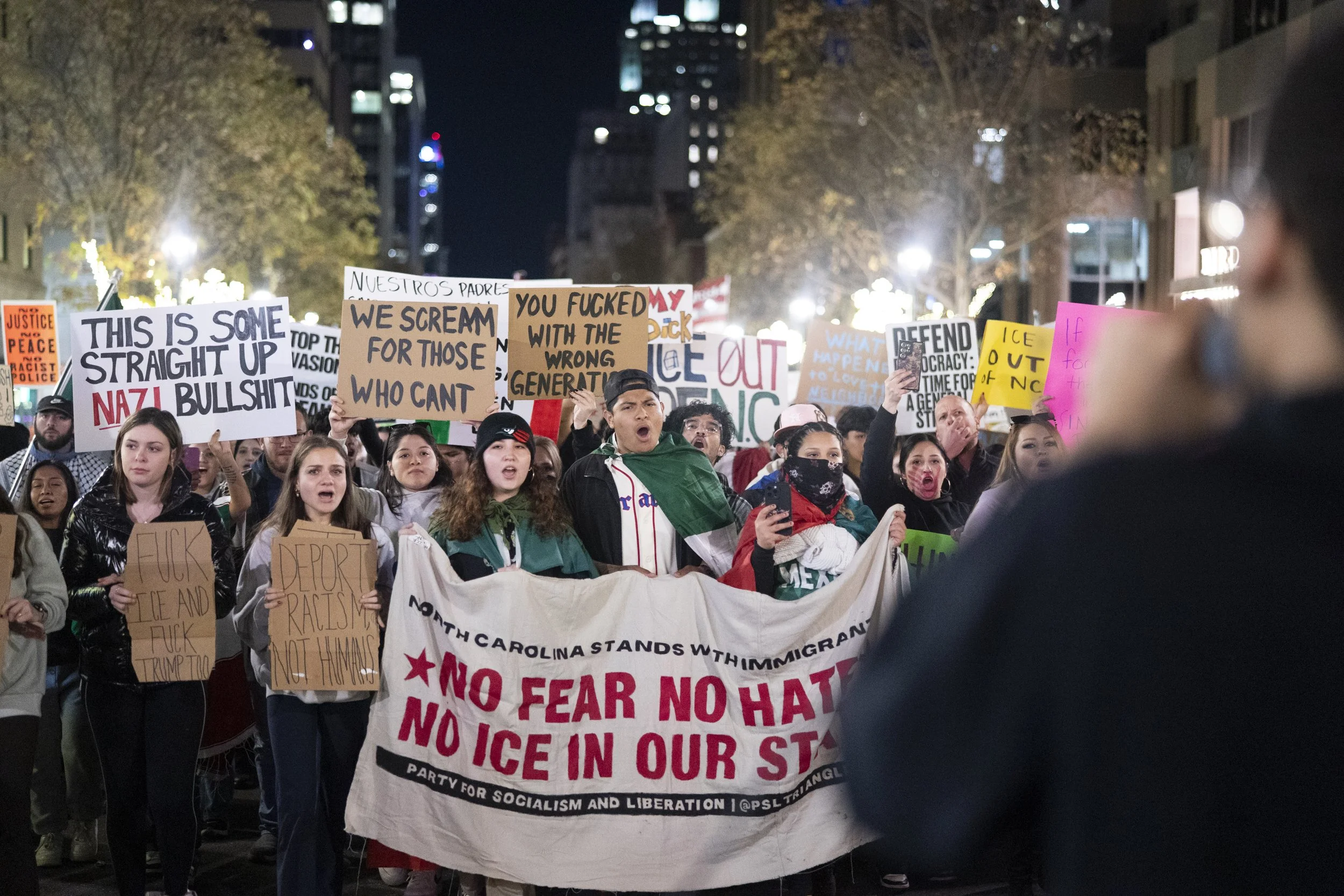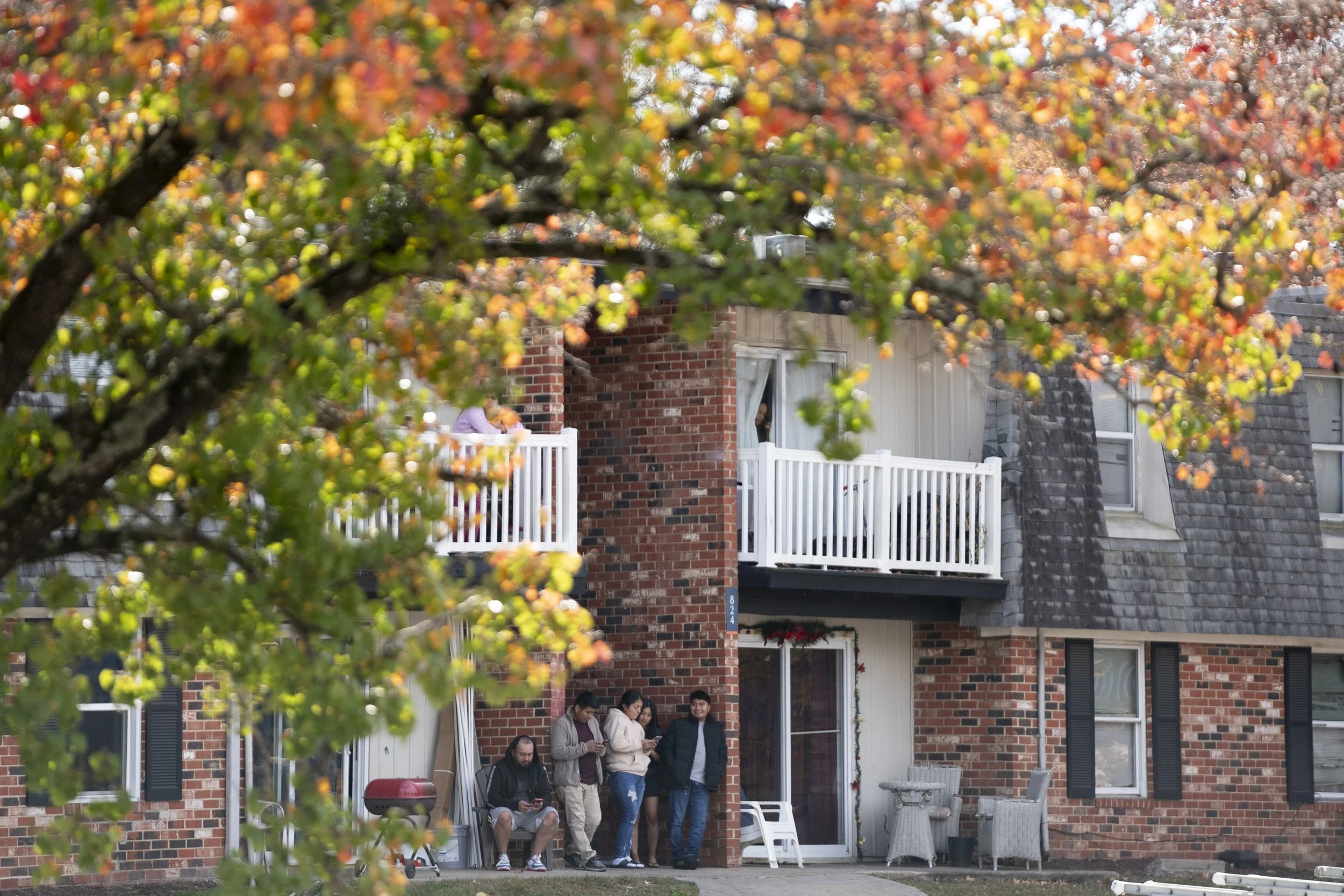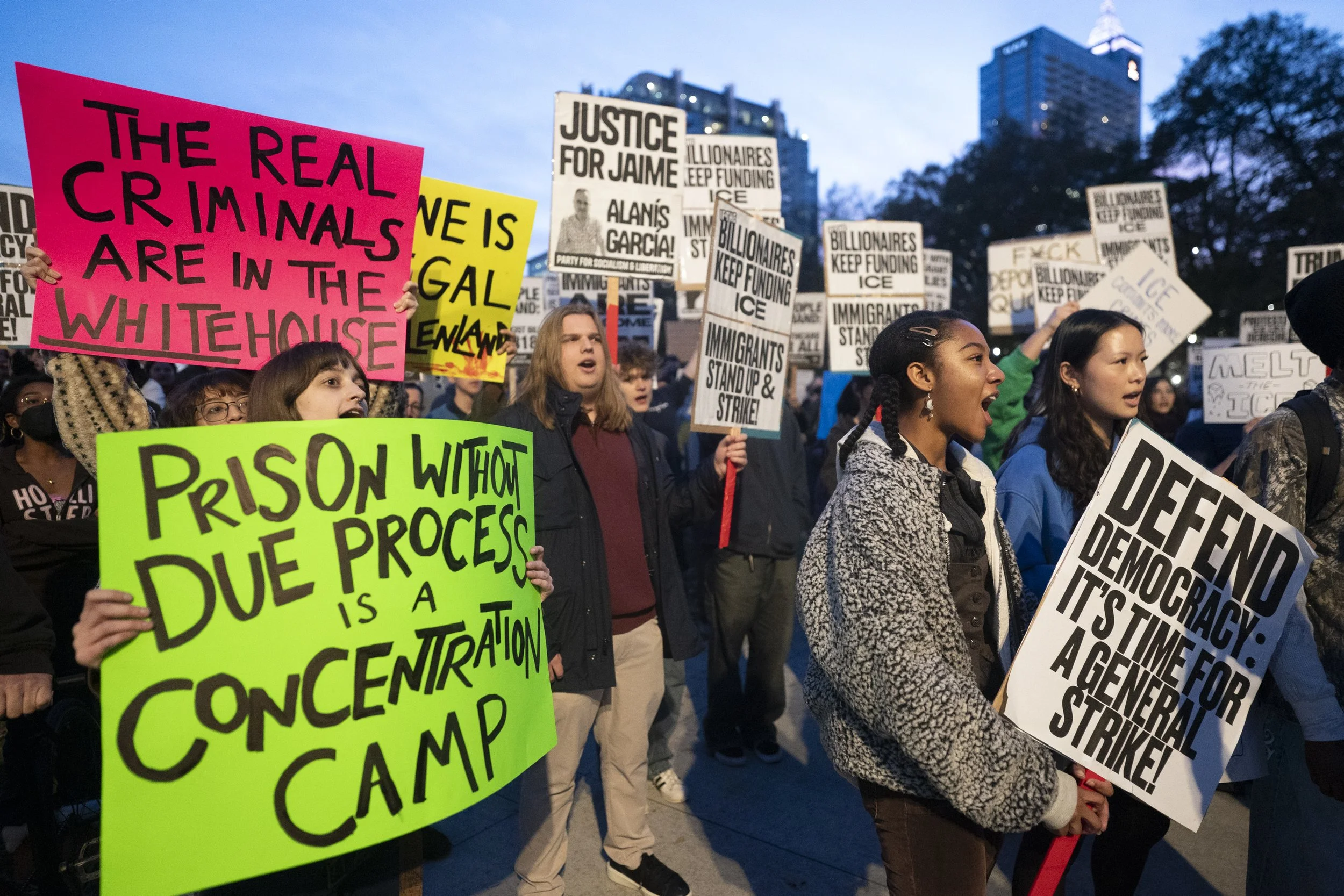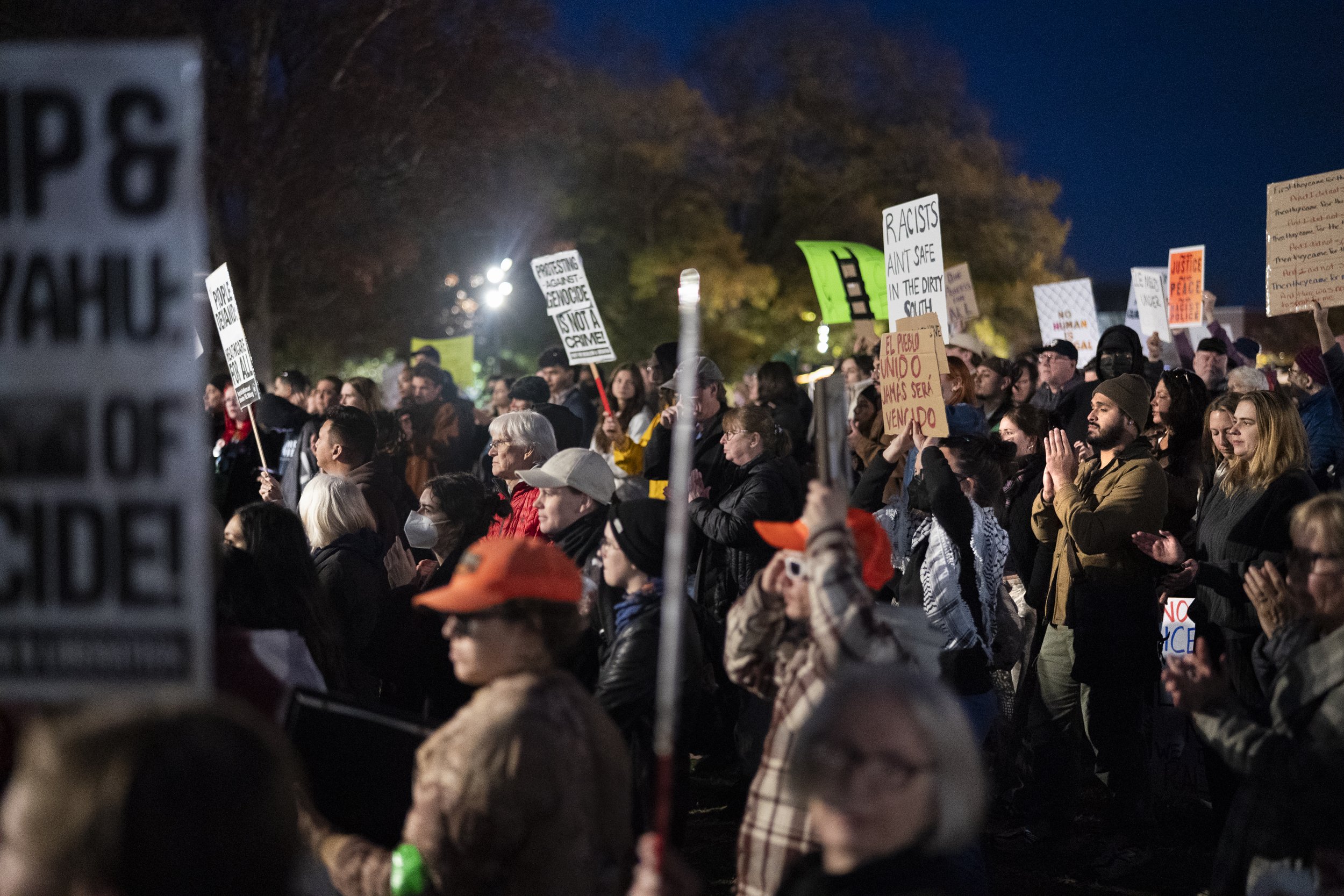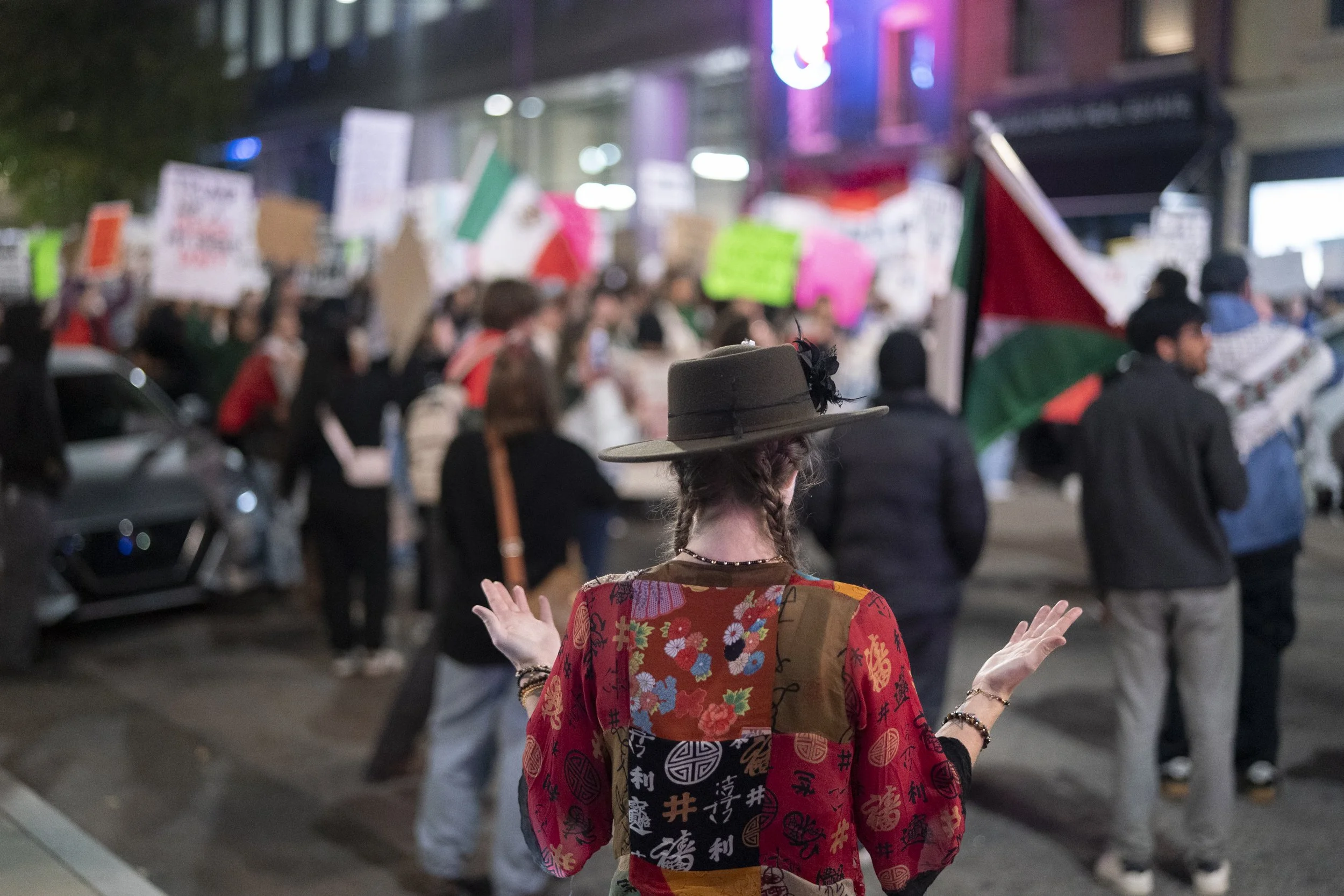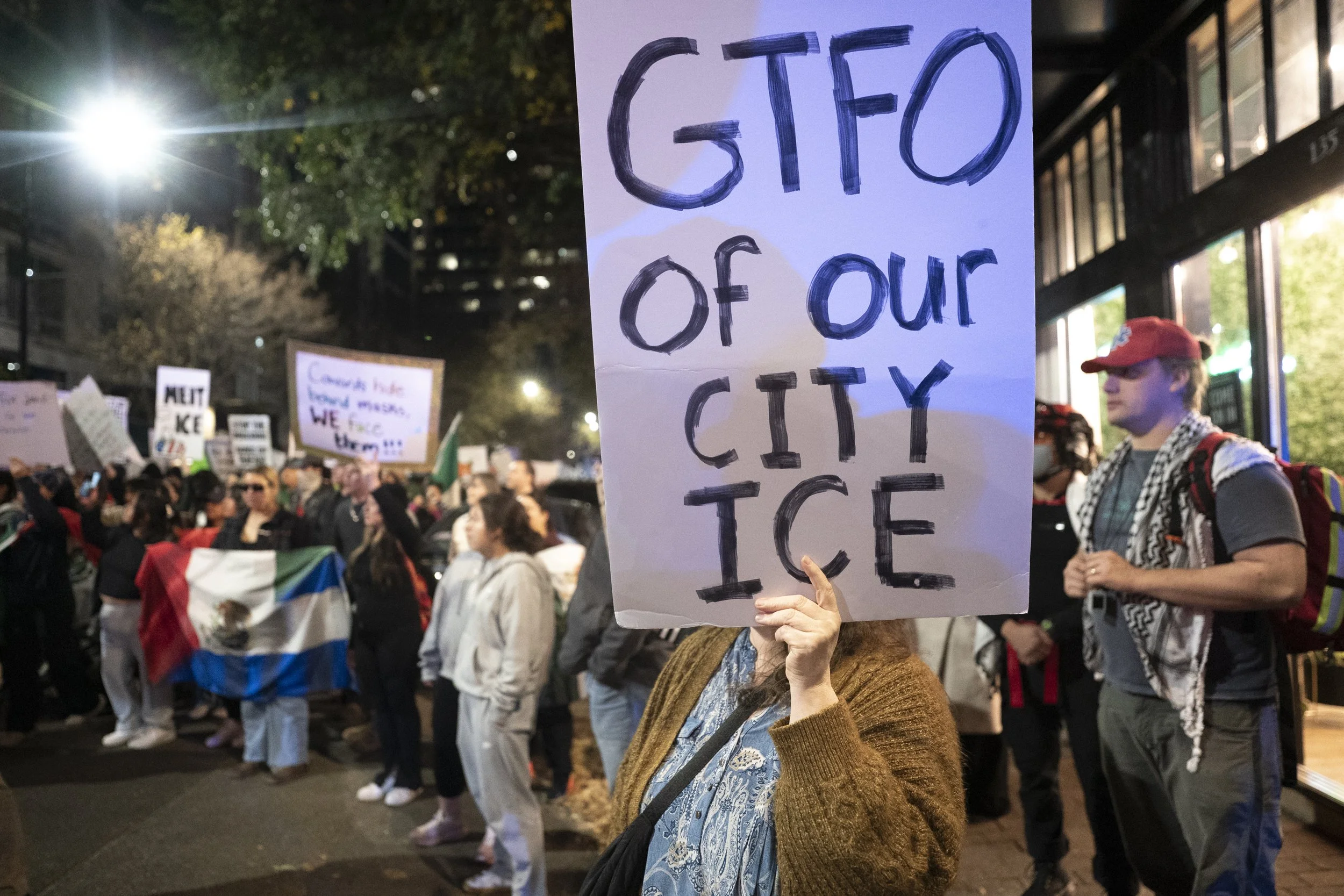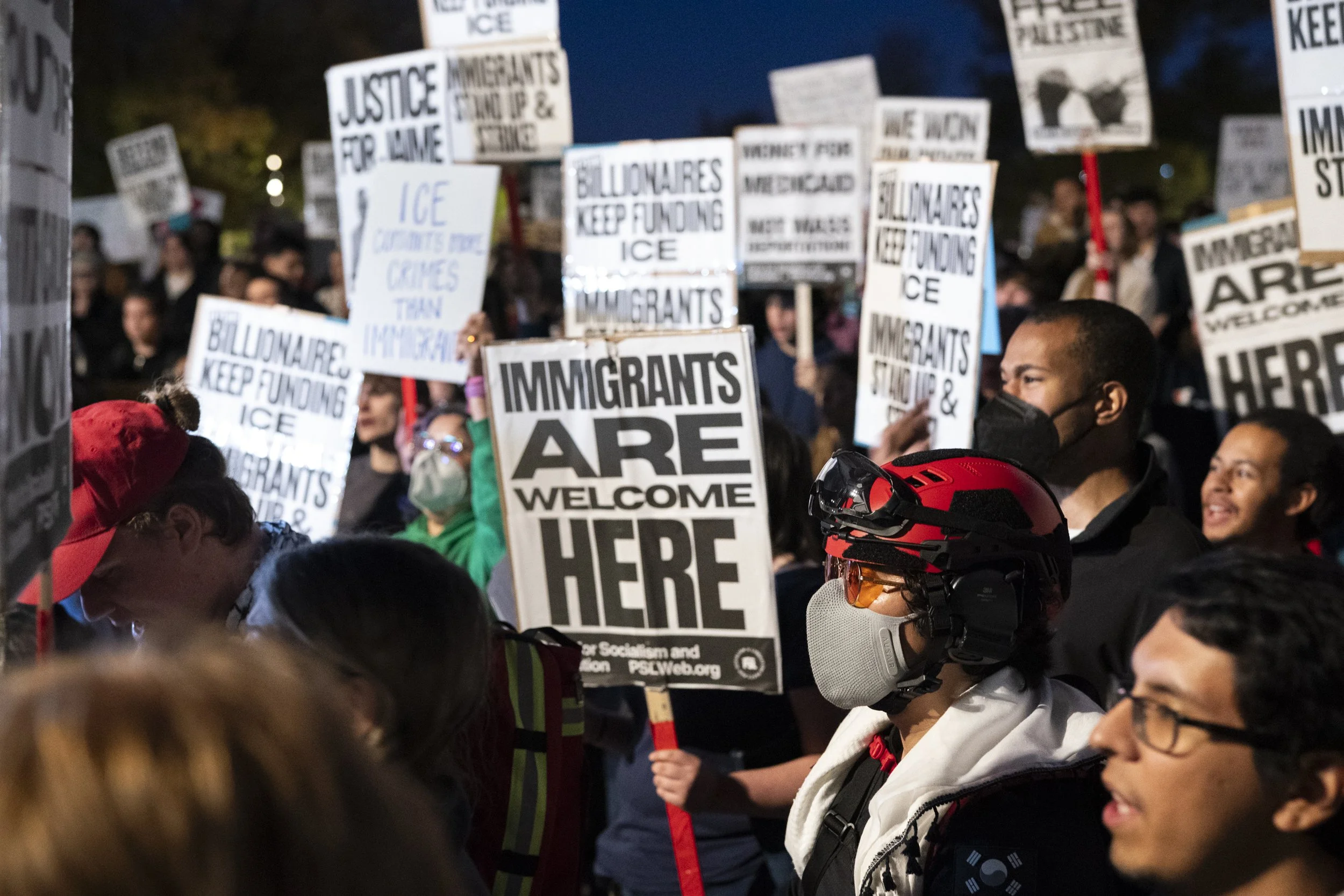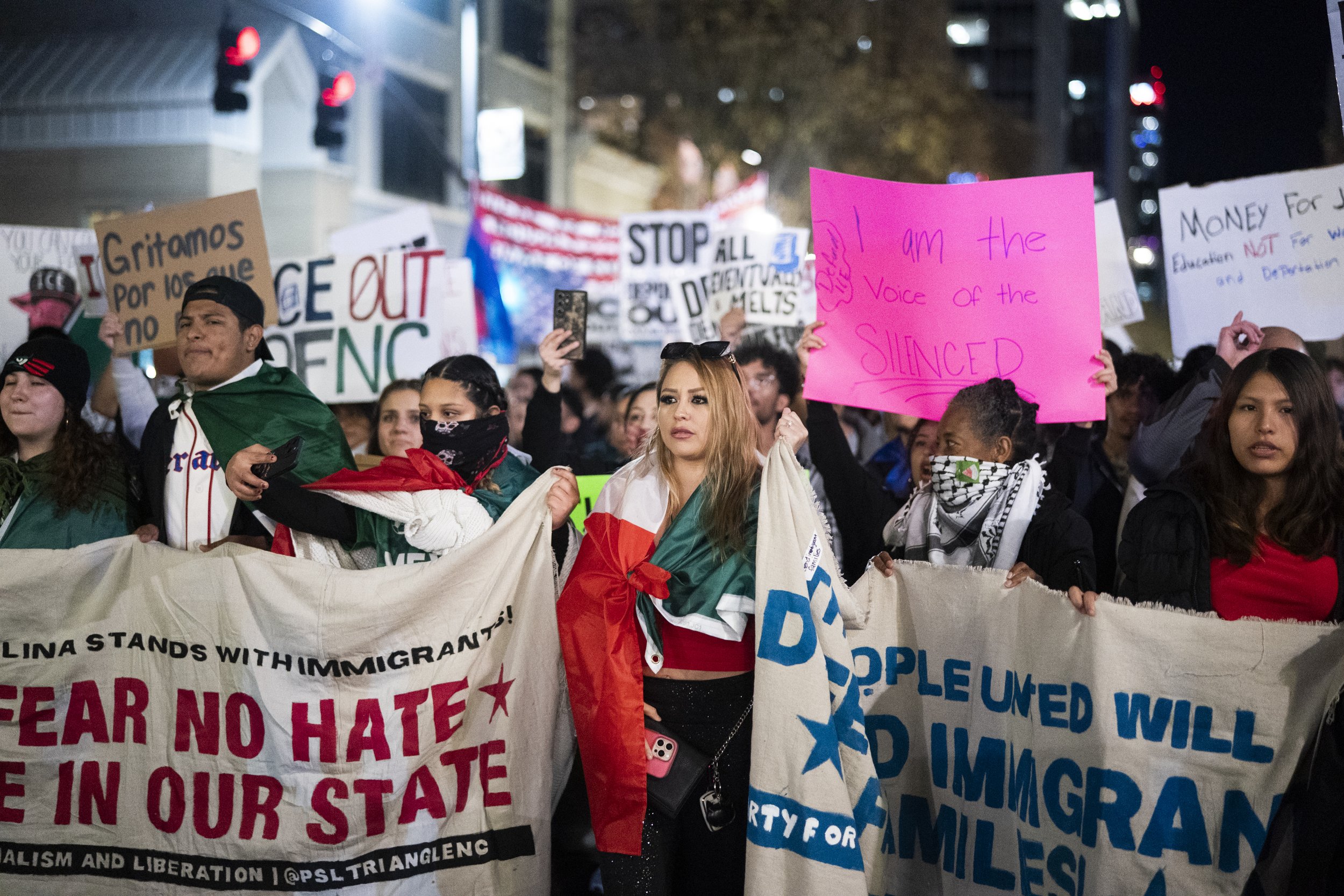Feds reach into Raleigh
Sixteen year-old Emma DeJoseph did her homework on the ride from Zebulon to Raleigh as her mother, Alisa, drove into the North Carolina state capital. Headed for an emergency protest against Border Patrol in North Carolina, the mother and daughter team were inspired after attending a recent No Kings protest.
“It's good to see that there's a lot more people that think like us. And it was good to see that. I felt really empowered,” said DeJoseph who joined hundreds of demonstrators downtown at Moore Square on Tuesday evening. She was dressed as a toilet with a sign reading “flush ice.” Emma says it’s pretty conservative where she lives.
Ross Anderson poses for a photo at Moore Square in Raleigh, NC on November 18, 2025. “There's a lot of unethical and dangerous problems that develop when when we see what's happened over the last 10 months. Namely, emergency powers allowing for circumventing the Constitution. And a lot of people out here love America enough to step out and do things we've never done before. Which includes, for us, first protests. But we, we can't sit idly by.”
“It’s empowering as well to use our first amendment rights like we're supposed to, and not feeling hushed.”
The DeJosephs live in Zebulon, about thirty minutes east of Raleigh. The small but growing town is named after Civil War era Governor Zebulon Vance, a Confederate officer paroled in 1865 and pardoned in 1867. He returned to politics and was reelected as Governor. Vance was a white supremacist.
“The general welfare and prosperity of our country, the very foundation of our society, of our fortunes, and, to a greater or lesser extent, the personal safety of our people, combine to make us defend [slavery] to the last extremity,” Vance said in a speech while senator.
Interestingly, and of historical perspective. Vance strongly opposed the Confederate Congress’ suspension of Habeas Corpus in March of 1864. The legal principle protects people from unlawful detention, requiring that those arrested be brought before a court. Vance valued civil liberties even during wartime, and thought unlawful detentions were an erosion of personal freedoms.
Ross Anderson also joined demonstrators on Tuesday night in Raleigh. His first protest, March of this year.
“That was in the wake of my brother's death, and he had served on the front lines of Ukraine as a volunteer, and seeing the American Ukraine support unravel was definitely the biggest motivator as to why we stepped out,” he said.
“There's a lot of unethical and dangerous problems that develop when when we see what's happened over the last 10 months. Namely, emergency powers allowing for circumventing the Constitution. And a lot of people out here love America enough to step out and do things we've never done before. Which includes, for us, first protests. But we, we can't sit idly by.”

